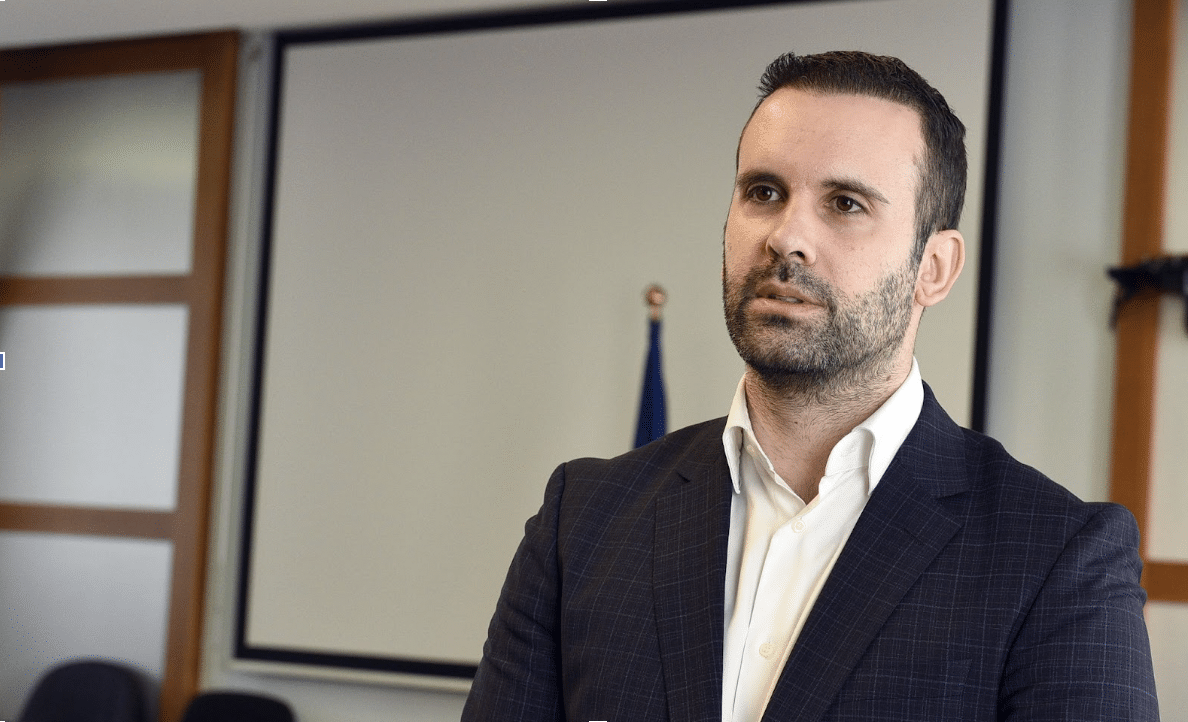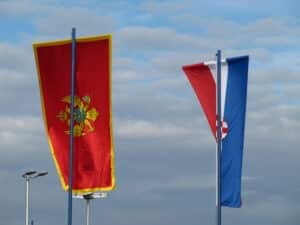Photo: Flickr
On the 10th of August, two months after the Montenegrin parliamentary elections, Milokjo Spajic (Europe Now) was nominated as Montenegro’s designated Prime Minister by his party colleague President Jakov Milatovic, which leaves Spajic with 90 days to form a new government. Although Milatovic’ and Spajic’ Europe Nowparty describes itself as pro-European and anti-corrupt, it remains highly questionable whether its rise to power will have a positive effect on Montenegro’s future and its path to EU-membership. What can we expect from a potential Europe Now-led coalition?
What preceded the emergence of Europe Now?
The June 2023 elections, in which Europe Now won 24 out of 81 seats, were preceded by years of political turmoil in Montenegro. From the moment the country became independent until August 2020, Montenegro was ruled by Milo Dukanovic, who has been Prime Minister four times and president twice, and his Democratic Party of Socialists (DPS). Under Dukanovic’s rule, Montenegro seriously struggled with authoritarianism and clientelism. After the August 2020 elections, DPS was historically blocked by a coalition of many parties, among which various pro-Serbian actors, which formed a technocratic government. This government proved to be very fragile, which led to its collapse in February 2022. Shortly after, a new minority government managed to take place. However, this government also fell due to a vote of no-confidence. A new government failed to form, which led to snap parliamentary elections in June 2023. These elections took place two months after presidential elections led to the removal of former president Milo Đukanović. He was replaced with Europe Now’s Jakov Milatovic.
Who are the driving forces behind the party?
The Europe Now party was founded only a year ago, in June 2022, by Milojko Spajic and Jakov Milatovic. Both served as non-partisan Ministers of Finance and Economy in the technocratic government that was in power from December 2020 to February 2022. In this cabinet, Spajic and Milatovic introduced an economic reforms program which entailed popular fiscal measures, such as increasing minimum wage and cutting healthcare contributions, causing the purchasing power of Montenegrin citizens to rise considerably.
Four months after this government collapsed, the two former Ministers, including other prominent figures, founded Europe Now as a centrist, liberal, secular, and pro-European party. In the local, parliamentary, and presidential elections that followed, the party has had enormous successes, winning these with large margins.
The instability of Europe Now
Although the emergence of the Europe Now party may seem hopeful, there are many snags in the party. For instance, the party has repeatedly been accused of Pro-Serb sentiments: Spajic holds dual Serbian-Montenegrin citizenship, a large part of Europe Now’s electorate is pro-Serbian, Milotovic has advocated for stronger ties with Serbia, and the party is supported by the Serbian Orthodox Church. In Montenegro, pro-Serbian politics are often associated with pro-Russian and anti-Western sentiments. Furthermore, during his term as Minister of Economic Development, Milatovic reportedly stood firmly against imposing sanctions on Russia.
Apart from allegations of being pro-Serbian, the Europe Now party has also faced allegations of corruption. Spajic and Milatovic have faced issues with being transparent about their finances: during their terms as Ministers, they took out a 720-million-euro-loan without consulting parliament and Montenegro’s Special State Prosecution is investigating the alleged financial relations between Spajic and fugitive cryptocurrency trader Do Kown.
Projected financial instability
Spajic is currently negotiating with the pro-Serbian and populist Democratic Montenegro party, the Socialist People’s Party and minority parties in order to secure a parliamentary majority. Reports suggest that he will also try to include the pro-Russian and pro-Serbian For the Future of Montenegro party. Spajic has refused to negotiate with the DPS, which was led by former President Dukanovic, and the URA, which is led by outgoing Prime Minister Abazovic.
Regardless of which parties will join Spajic in forming a government, it is clear that Europe Now, being represented by both the president and Prime Minister, will have much power in the upcoming parliamentary term. This may spark concerns, as the discrepancy between the party’s claimed ideals and its internal culture lead many to describe them as a rather populist movement. Europe Now’s populist tendencies have also been evident through their proposals: the party has economic plans for extraordinarily high popular spending, for example on pensions, minimum wage, and shortening working days. Experts deem these plans unviable in the already over-indebted Montenegro. If these rather populist, short-term fixes end up exploiting Montenegro’s state treasury, this could lead to serious economic crises which will likely fuel far-right, anti-EU, and pro-Russian sentiments.
And if it isn’t Europe Now’s popular spending that will create instability in Montenegro, the future government is likely to be fragile and unpredictable either way. Expert Milo Besic said that he does “not expect a stable political government in Montenegro because the new ruling majority will be composed of too many parties. If we add economic problems in the country and potential struggles within political blocs, we can expect early elections within at least two years.”
In conclusion, Europe Now’s inherent instability, populist measures, and struggles in forming a steady government spark concerns over Montenegro’s future. As we can see in other European contexts, times of political unpredictability and economic insecurity often lead to increased support for anti-democratic sentiments. This potential effect would seriously undermine Montenegro’s efforts for joining the EU and fighting corruption. We should therefore keep an eye out for the developments in Montenegro’s government formation process.
Written by Luna Sent



